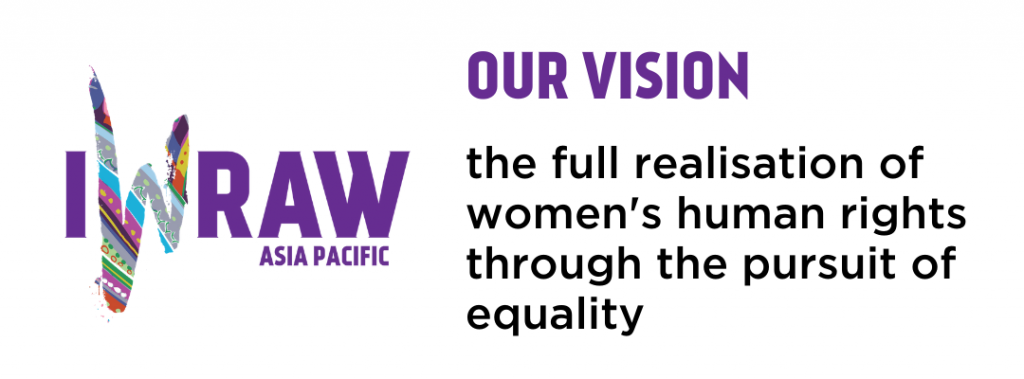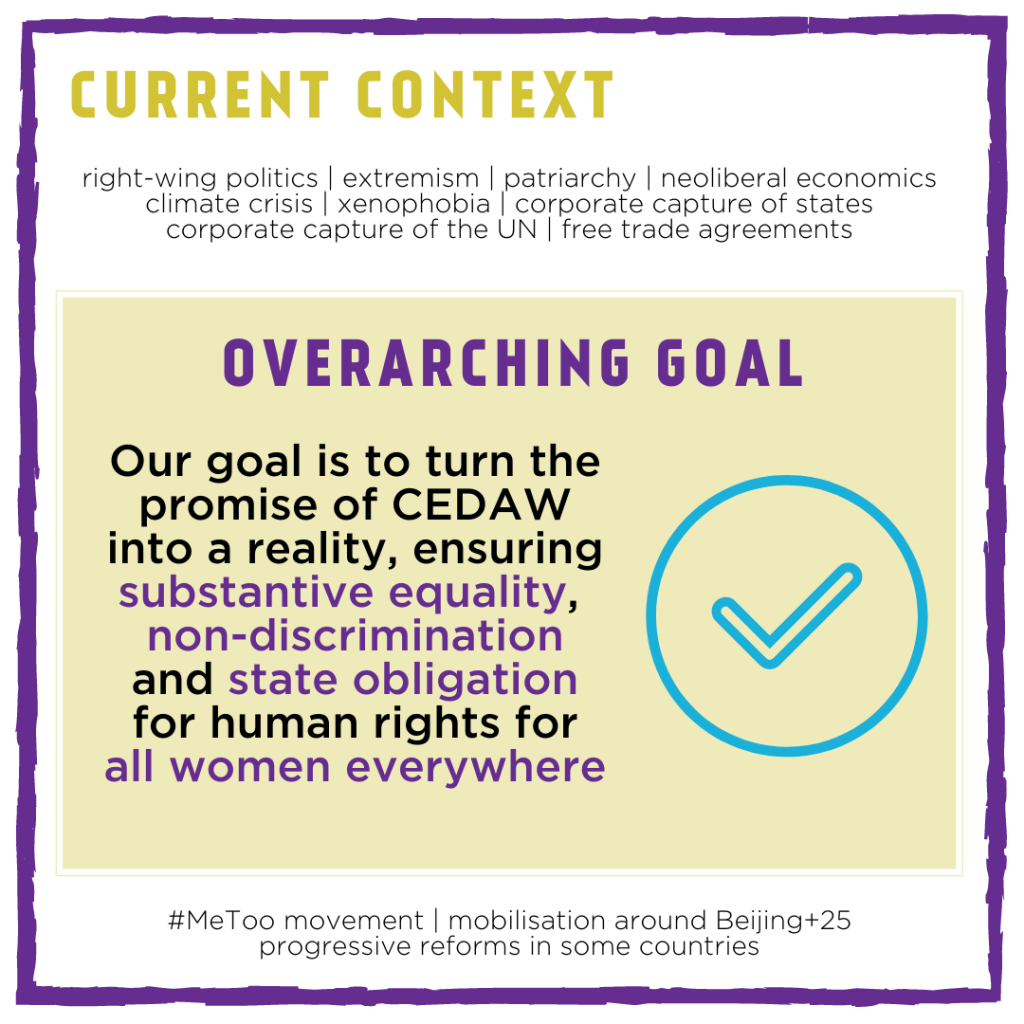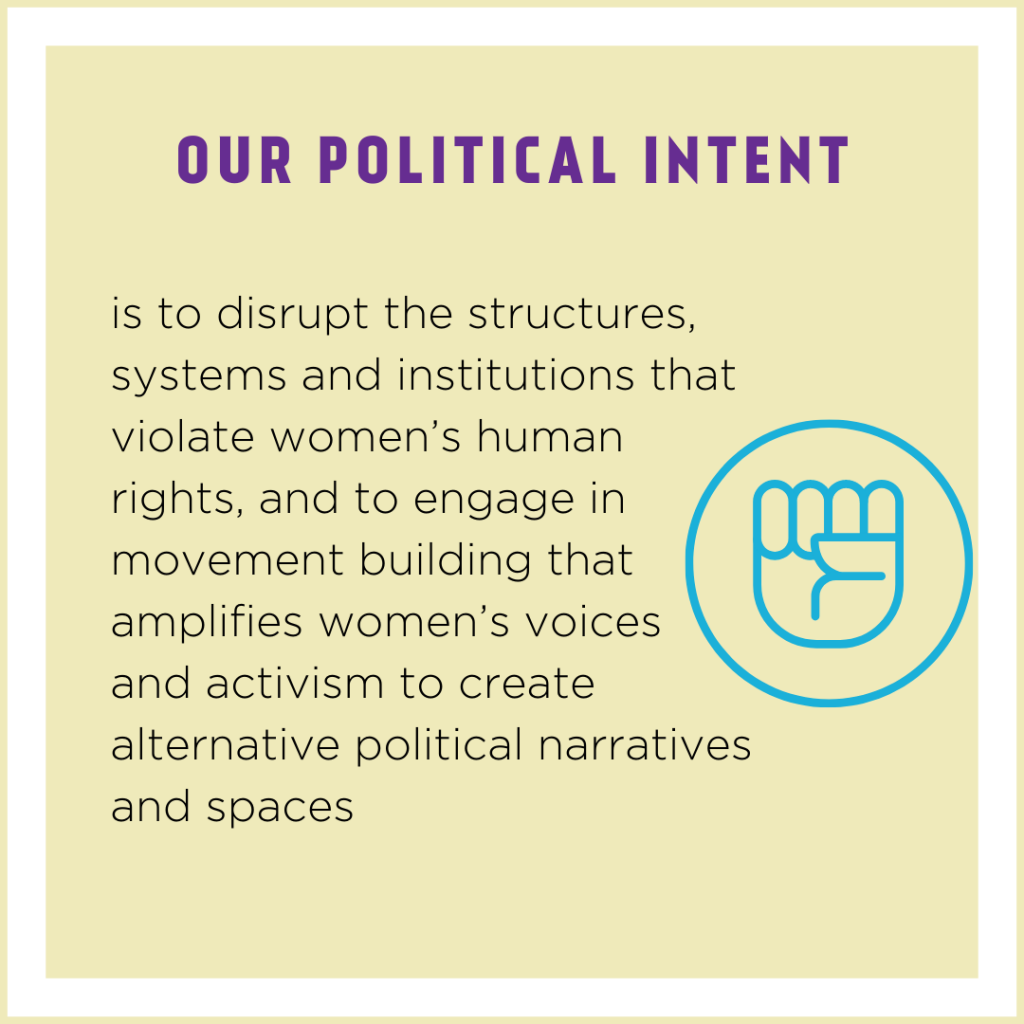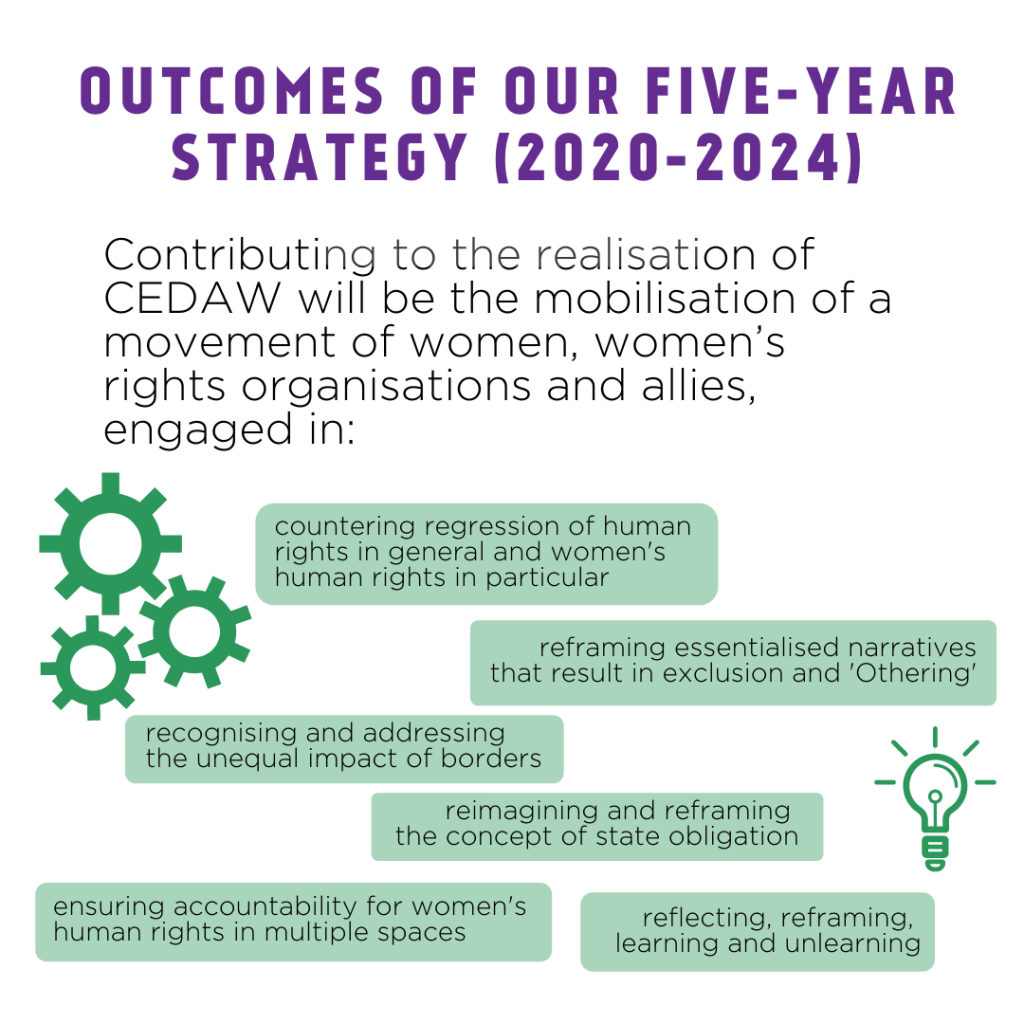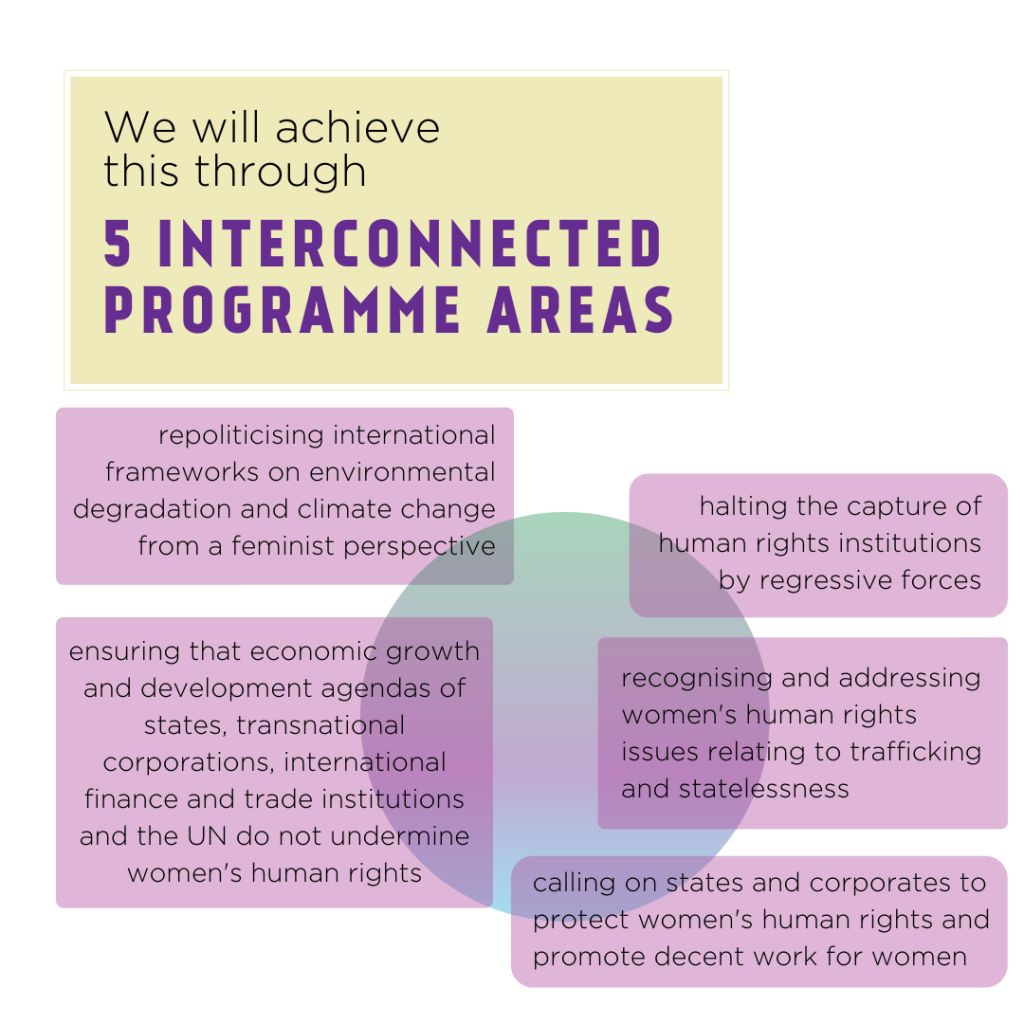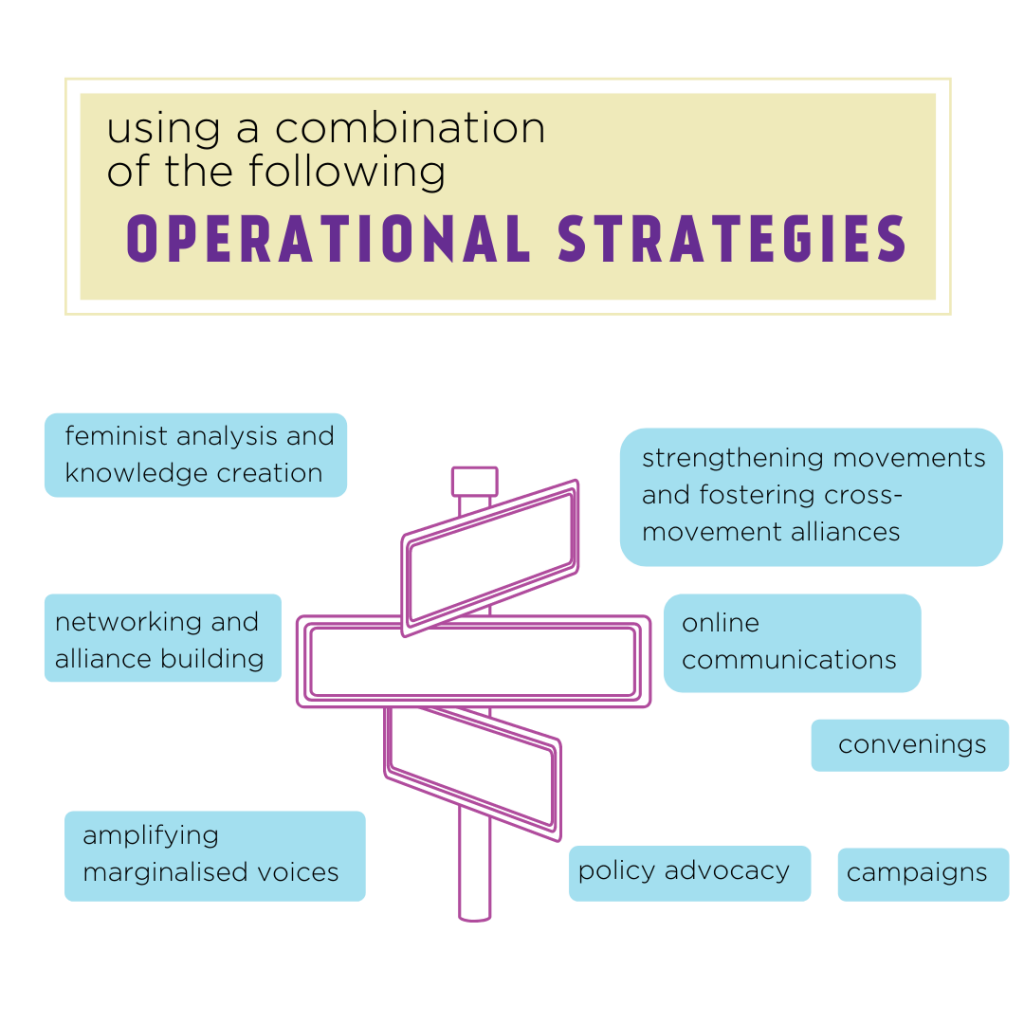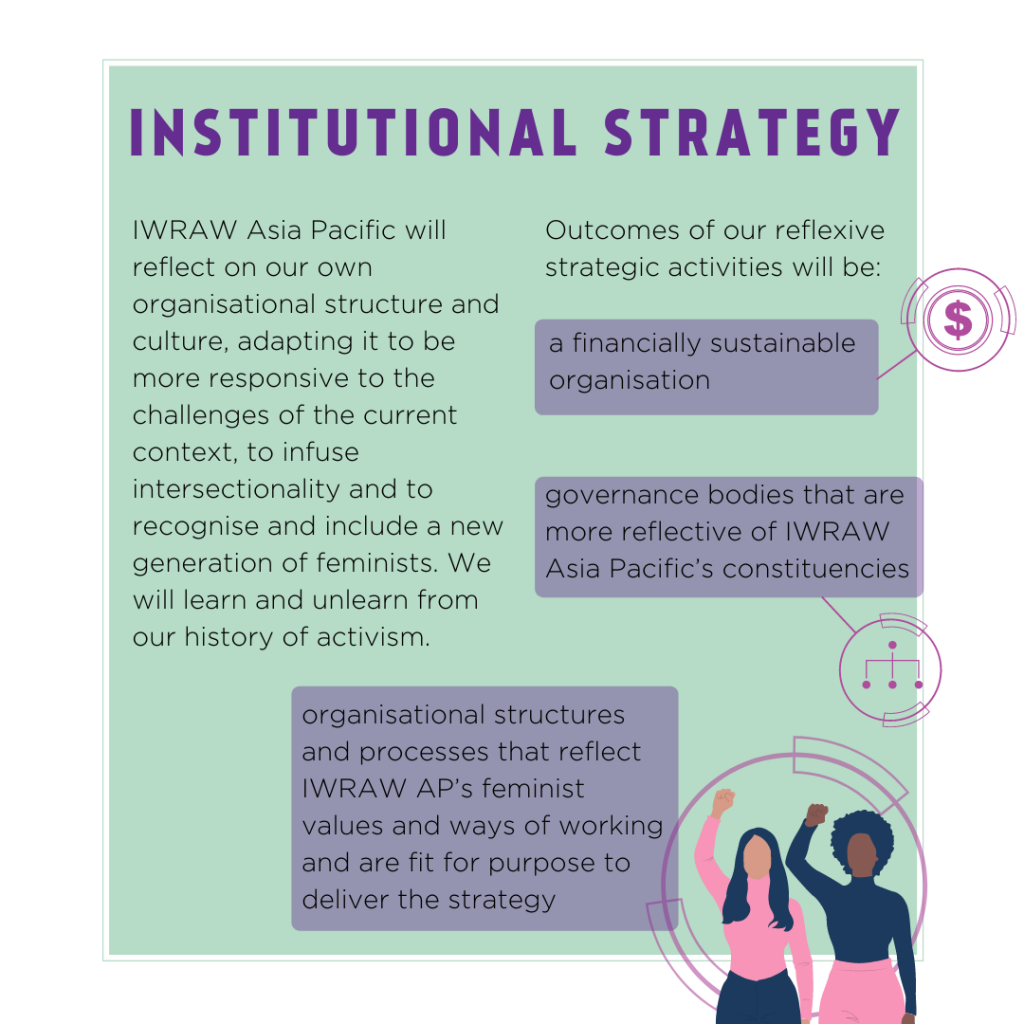Our way of working has always been to create a culture of compliance with CEDAW and other human rights treaties through a range of strategies. These include strengthening the capacities of women’s rights organisations and other actors; engaging in evidence-based advocacy with the CEDAW committee and other treaty bodies, public institutions at the national, regional and international level, and the private sector; and developing extensive networks and strategic alliances to achieve gender equality.


